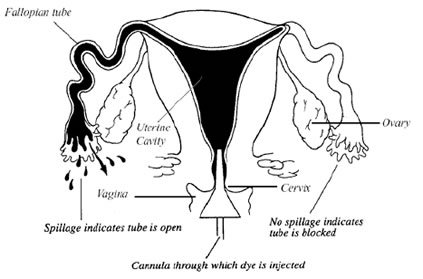FAQs
Is the HSG uncomfortable?
Although an HSG usually causes mild or moderate uterine cramping for five to ten minutes, some women may experience cramps lasting several hours. The symptoms can be greatly reduced by taking medications used for menstrual cramps, but you must speak with your physician to be sure this is acceptable for your specific case. Women may want to have a family member or friend drive them home after the procedure.
How should I prepare for the HSG?
Prior to the HSG, you should:
- Talk to your physician about the test: how it is done, what are its risks, how the test will help with your treatment, and any other questions you may have.
- Tell your physician if you are or might be pregnant. A pregnancy test will be performed before your test to confirm that you are not pregnant.
- Tell your physician if you have or may have a pelvic infection.
- Inform the physician if you are allergic to iodine dye or shellfish.
What should I expect after the HSG?
After your HSG:
- You can immediately resume normal activities but may be asked to refrain from sexual intercourse for several days.
- Spotting commonly occurs for a day or two after the HSG, as some of the dye leaks out of the vagina. There may also be slight vaginal bleeding and the use of sanitary napkins is recommended. Do not use a tampon.
- Additional symptoms may include feeling dizzy, faint, or nauseous, as well as cramps.
- If an abnormality is noted on the HSG, your physician will discuss the steps available to correct the issue.
What do normal HSG images look like?
These images are for educational purpose and you should consult your physician for a proper diagnosis.
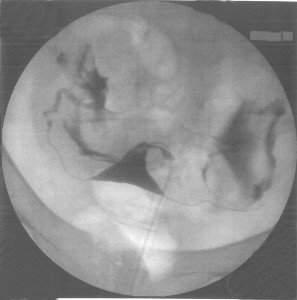
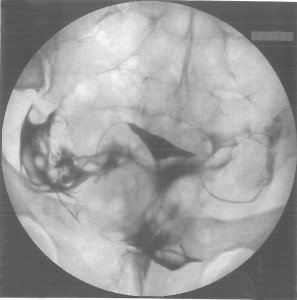
What do abnormal HSG images look like?
These images are for educational purpose and you should consult your physician for a proper diagnosis.
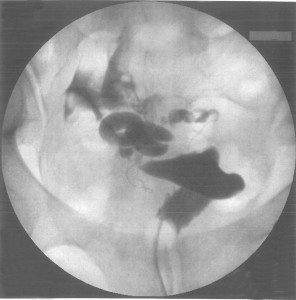
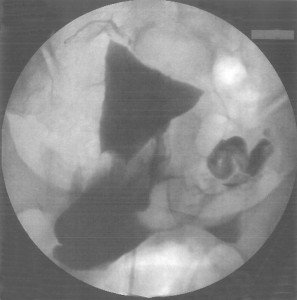
What are the risks and complications associated with HSG?
An HSG is considered a very safe procedure. However, there is a set of recognized complications, some serious, that occur rarely.
- Infection – The most common serious problem with HSG is pelvic infection, which usually occurs when a patient has previous tubal disease. In rare cases, infection can damage the fallopian tubes and/or necessitate their removal. The patient should call her physician if she experiences increasing pain or a fever within one to two days of the HSG.
- Fainting – The patient may get light-headed during or shortly after the procedure.
- Radiation Exposure – Radiation exposure during the HSG is very low, less than with a kidney or bowel study, and there have been no demonstrated ill effects from this radiation, even if conception occurs later the same month. The HSG should not be done if pregnancy is suspected.
- Iodine Allergy – A patient may have an allergy to the iodine contrast used in an HSG and should inform her physician if she is allergic to iodine, intravenous contrast dyes, or seafood. Women who are allergic to iodine should have the HSG procedure performed without an iodine containing contrast solution. If a rash, itching, or swelling is experienced after the procedure, the physician should be promptly contacted.
- Spotting – Spotting commonly occurs for one to two days after the HSG, but any heavy bleeding should be immediately reported to the physician.
What are my payment options?
Most major medical insurances are accepted. Special self-pay pricing available.
*Ask your gynecologist for a prescription today*
For more information, please fill out our online contact form or call us toll free at 1 (866) 483-6366.

